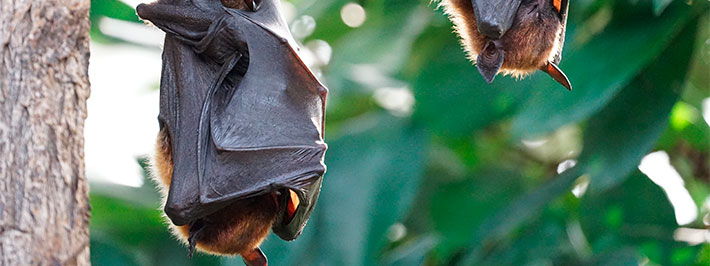
Nipah virus: what we know about this serious disease that worries the WHO
On Sunday, September 5, 2021, a 12-year-old boy died in India. He had been infected with the Nipah virus, which causes a disease for which there is no treatment or vaccine. Health authorities fear a possible epidemic.
"At the moment, there is no reason to panic, but we must be careful." This was announced by Veena George, Minister of Health of the State of Kerala, after the death of a 12-year-old boy infected with the Nipah virus.
One death in less than 48 hours and two other confirmed cases
Hospitalized on September 3, 2021, the young man presented symptoms of myocarditis, inflammation of the heart muscle and encephalitis, an infection of the brain. He died 48 hours later in the hospital. According to CBS, a sample taken from the boy tested positive for the Nipah virus, after testing him by the Indian National Institute of Virology.
The Indian government has also clarified that two health workers have shown symptoms of the Nipah virus and are therefore potentially infected. These are among the 20 high-risk contacts of the deceased child. A total of 188 people are said to have come into contact with the victim.
The state of Kerala under surveillance
Since the death of this child infected by the Nipah virus, concern reigns in the province of Kerala, on full alert.
With a mortality rate of 70%, this virus is an emerging infectious agent capable of triggering serious epidemics if it evolves to gain in transmissibility, explains the Pasteur Institute.
What is the Nipah virus?
The Nipah virus (NiV) is transmitted from animals to humans, particularly through bats, but also from pigs and horses. According to the World Health Organization (WHO), it is a zoonotic virus but it can be transmitted from person to person.
First identified in Malaysia in 1999 after a multiplication of cases in pig farms, this virus has not stopped circulating for twenty years.
In the first outbreaks of infection, large numbers of residents became infected as a result of direct contact with pigs and other infected animals. "The most likely source of infection was the consumption of fruit or fruit products contaminated with the urine or saliva of infected bats," says the WHO.
Nipah virus: what are the symptoms?
Symptoms appear four to fourteen days after exposure to the virus: fever, migraine, cough, sore throat, shortness of breath, vomiting.
Like the coronavirus, the Nipah virus can cause asymptomatic illness. However, its peculiarity results in an acute respiratory infection or even fatal encephalitis.
So how do you fight that virus? There is no vaccine or treatment to fight Nipah. The only lever that can be activated to limit the transmission of the virus is prevention.
The Pasteur Institute indicated that world health authorities have made the Nipah virus "a research priority to prevent health crises."